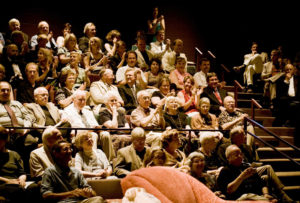by Gary Danciu
 As someone who loves stories and telling stories, it’s always been hard not to look at my own life through a narrative lens. My life will have had a beginning, middle and an end. I’ll look back at my life and see the different chapters and characters that made up my story. My time with the Commonweal has been a significant and important chapter, and I know that it will remain that way for the rest of my life. After six seasons with the Commonweal, I have decided to bring this chapter to its end. I did not make this decision lightly. I came to the Commonweal as an apprentice in May of 2011, a year after graduating college. This past August, I decided it was time to move on and find new theatrical experiences in the Twin Cities.
As someone who loves stories and telling stories, it’s always been hard not to look at my own life through a narrative lens. My life will have had a beginning, middle and an end. I’ll look back at my life and see the different chapters and characters that made up my story. My time with the Commonweal has been a significant and important chapter, and I know that it will remain that way for the rest of my life. After six seasons with the Commonweal, I have decided to bring this chapter to its end. I did not make this decision lightly. I came to the Commonweal as an apprentice in May of 2011, a year after graduating college. This past August, I decided it was time to move on and find new theatrical experiences in the Twin Cities.
I remember my first day in Lanesboro quite well. A few company members greeted me warmly at our artist’s residence and then I attended the opening night of Sylvia. At the opening night party, I was introduced to the variety of interesting characters that inhabited the company at the time. Little did I know, that I would meet many more characters and that my time in Lanesboro would extend all the way to December of 2016. During my time with the Commonweal, I have been given incredible opportunities to grow as an actor and a person. I performed in sixteen productions, served on the design team for nine productions and received experience in all aspects of the company’s administration. I’ve worked with dozens of talented artists over the past six seasons and I have forged life long friendships. To be honest, when I first came to Lanesboro in 2011, I wasn’t sure if I had what it took to make a life for myself in the theatre. I knew I had talent and a passion for theatre, but I just couldn’t imagine myself going off on my own and really making it happen. My experiences here and the people who I have worked with have all helped me to imagine that reality. I now know that I have the tools and confidence to move forward.
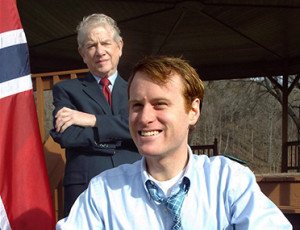 What I have valued most at the Commonweal is the chance to feel a part of a greater team and community. Throughout my life, I’ve always had the good fortune of doing what I love in service of something bigger than myself. At the Commonweal, I’ve always been made keenly aware of the effect my work has had on our audience. I’ve always known what my work and the work of my colleagues means to Lanesboro. There are good days and bad days at the company (as there are everywhere), but I have found every experience, good and bad, to be educational and valuable. Wherever my path leads, I hope to eventually find that sense of connection and community that has been so deeply satisfying during my time here.
What I have valued most at the Commonweal is the chance to feel a part of a greater team and community. Throughout my life, I’ve always had the good fortune of doing what I love in service of something bigger than myself. At the Commonweal, I’ve always been made keenly aware of the effect my work has had on our audience. I’ve always known what my work and the work of my colleagues means to Lanesboro. There are good days and bad days at the company (as there are everywhere), but I have found every experience, good and bad, to be educational and valuable. Wherever my path leads, I hope to eventually find that sense of connection and community that has been so deeply satisfying during my time here.
I’d like to take this opportunity to express my overwhelming feeling of gratitude to all of you who have made my time here in Lanesboro such an unforgettable and wonderful chapter of my life. I’ve been thinking a lot about all the people I’ve gotten to know over the years, artists I’ve worked with, patrons, and the people of Lanesboro. I also want to thank my parents for all the trips they made the see me perform and for all of their love and support from afar. You have all played a part in my journey, and I hope in some small way I was able to do the same for you. Even though I am moving on to the next chapter, the Commonweal and Lanesboro are places I will proudly and always call home.
The Many Faces of Gary’s Commonweal Career:

Little Shop of Horrors, 2011 
Parfumerie, 2011 
The Metal Children, 2012 
Pillars of Society, 2012 
The Philadelphia Story, 2012 
Sherlock Holmes: The Final Adventure, 2013 
The Last Night of Ballyhoo, 2013 
Brand, 2014 
Around the World in 80 Days, 2014 
Arcadia, 2014 
Woody Guthrie’s American Song, 2015 
Charley’s Aunt, 2015 
Little Women, 2015 
The League of Youth, 2016 
The Three Musketeers, 2016
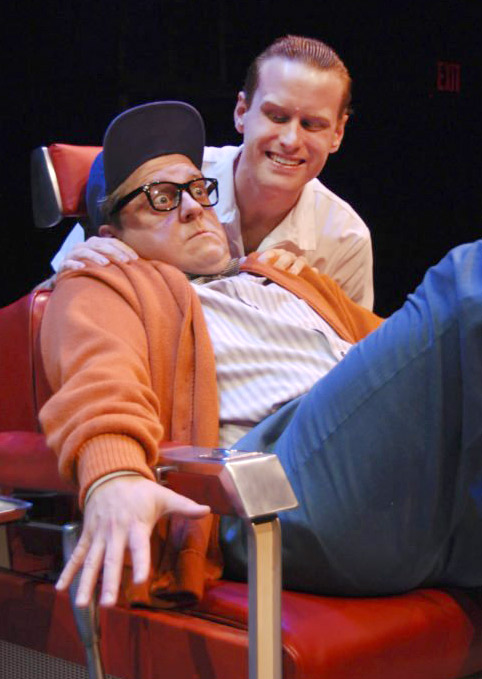
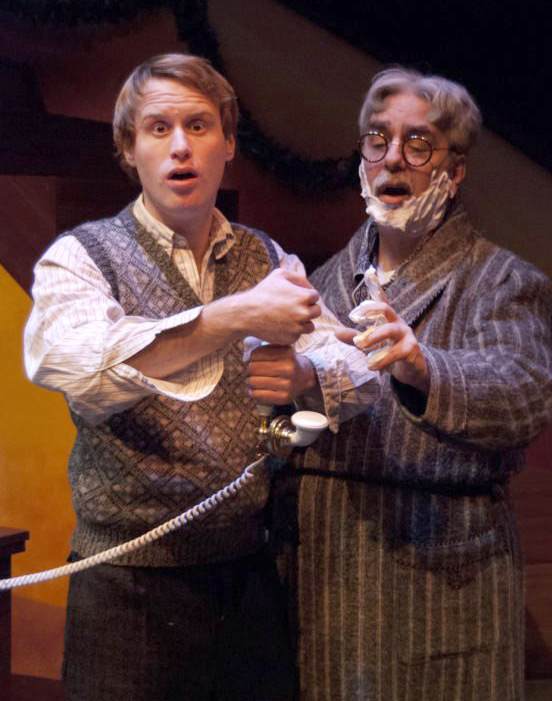
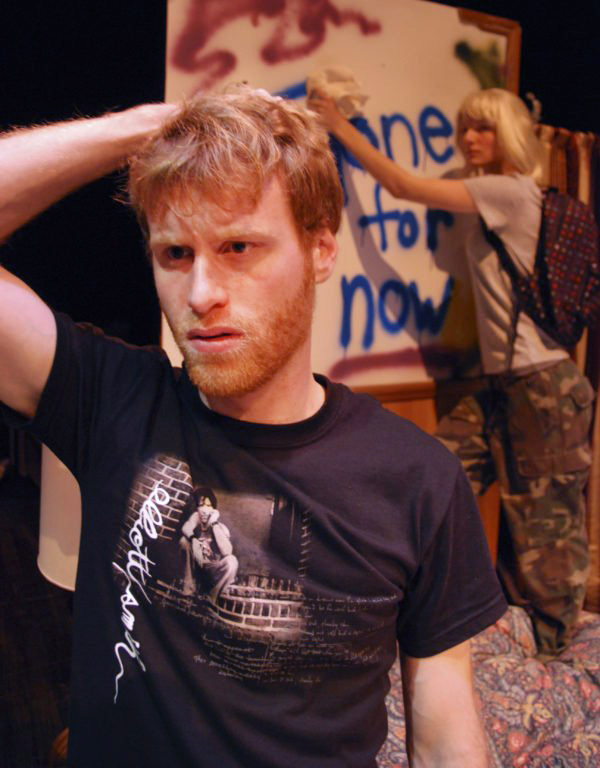
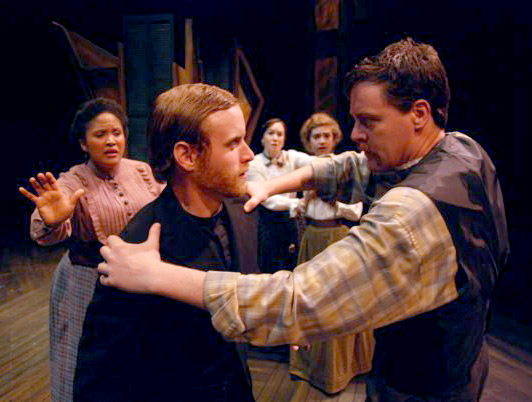
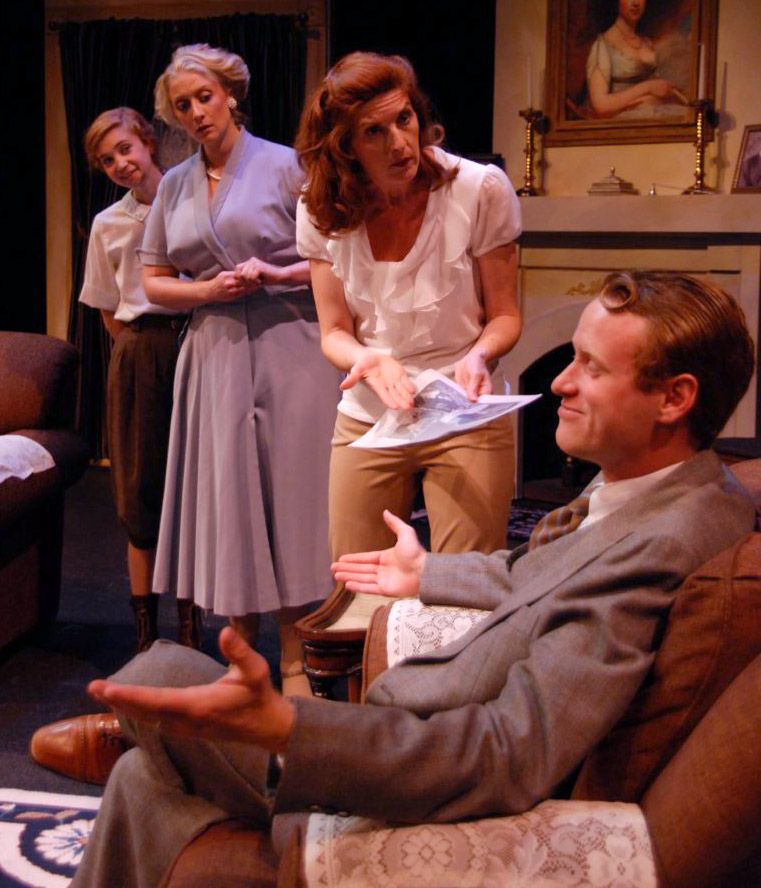
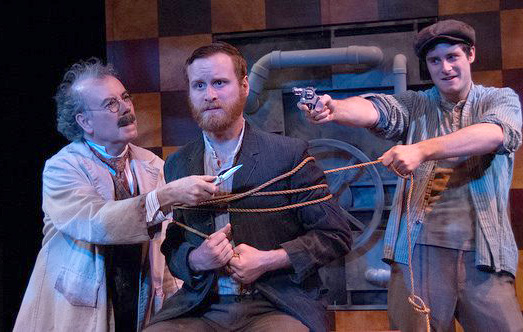
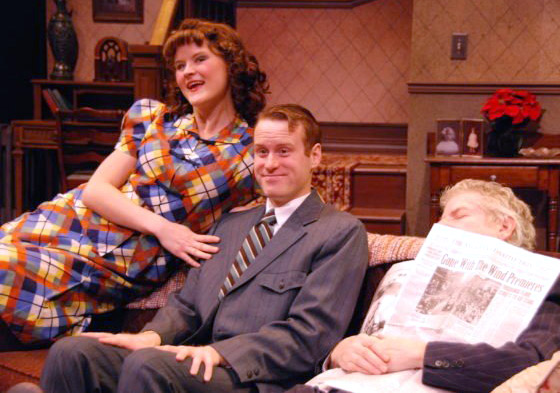
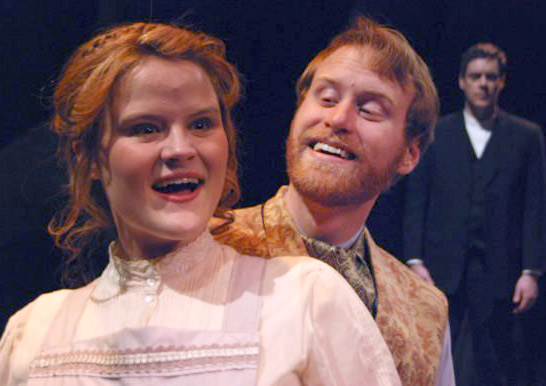
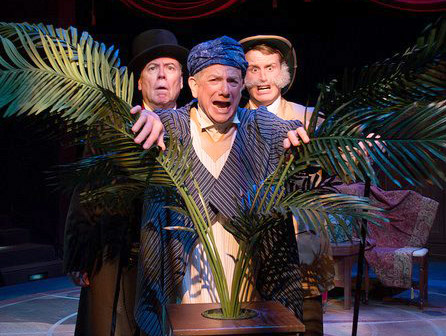
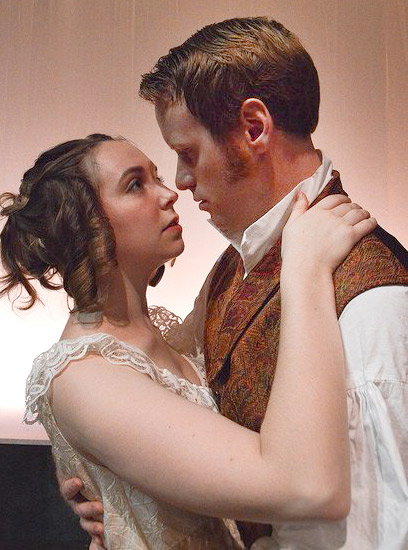
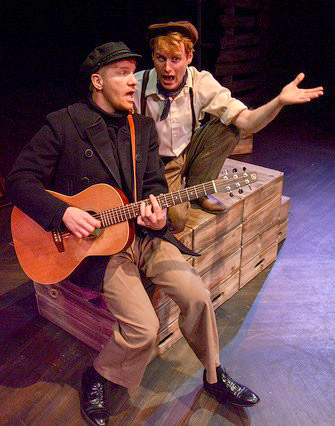
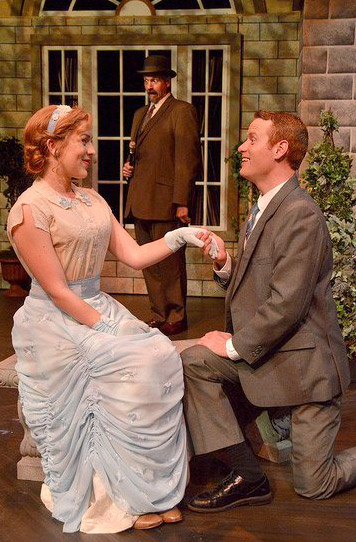
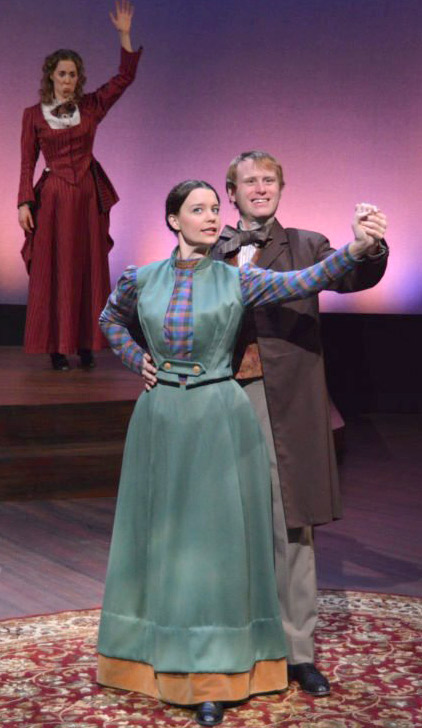
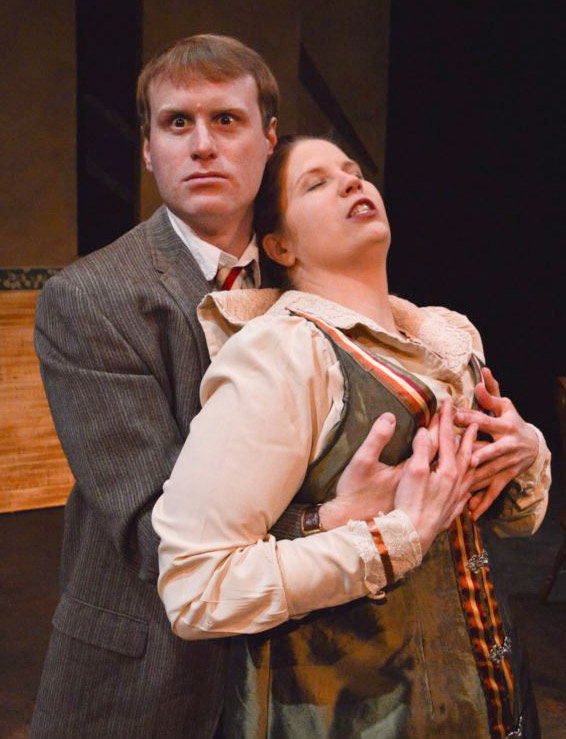
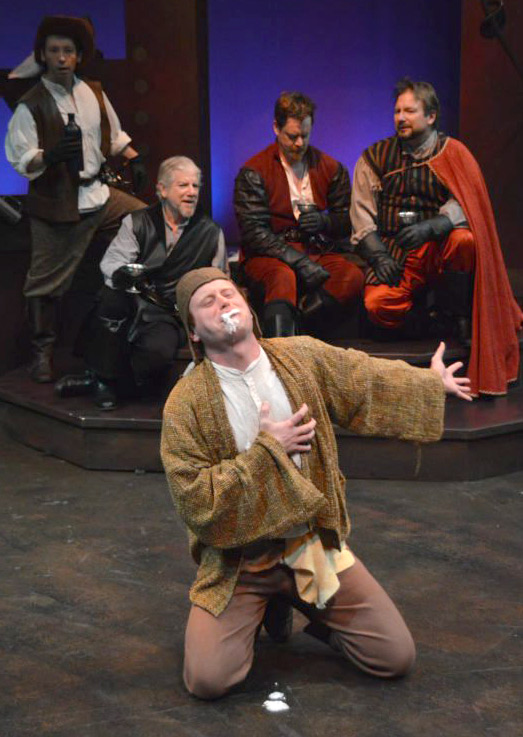
 Once upon a time, there were theatres and opera houses in nearly every small community in this wide country of ours. Vaudeville shows, symphonies, magic acts, acrobats, circuses and touring companies gave the teeming masses a balm to contend with life’s travails. Live entertainment was the rage and had been for centuries. These performances gave men and women an escape, an entrance into the world of their imagination where they could view humanity in its heightened form: distilled to its essence.
Once upon a time, there were theatres and opera houses in nearly every small community in this wide country of ours. Vaudeville shows, symphonies, magic acts, acrobats, circuses and touring companies gave the teeming masses a balm to contend with life’s travails. Live entertainment was the rage and had been for centuries. These performances gave men and women an escape, an entrance into the world of their imagination where they could view humanity in its heightened form: distilled to its essence.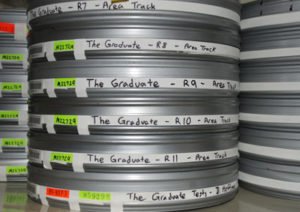 It was the age of Hollywood. Movie stars graced the silver screen and millions of viewers across the country idolized these monochromatic giants. Edison’s little contraption had unwittingly changed the face of theatre. No more could plays be performed as naturally or realistically as the public demanded. Film was able to capture the real world far better than any stage set. The audience had become accustomed to their new viewfinder world.
It was the age of Hollywood. Movie stars graced the silver screen and millions of viewers across the country idolized these monochromatic giants. Edison’s little contraption had unwittingly changed the face of theatre. No more could plays be performed as naturally or realistically as the public demanded. Film was able to capture the real world far better than any stage set. The audience had become accustomed to their new viewfinder world.